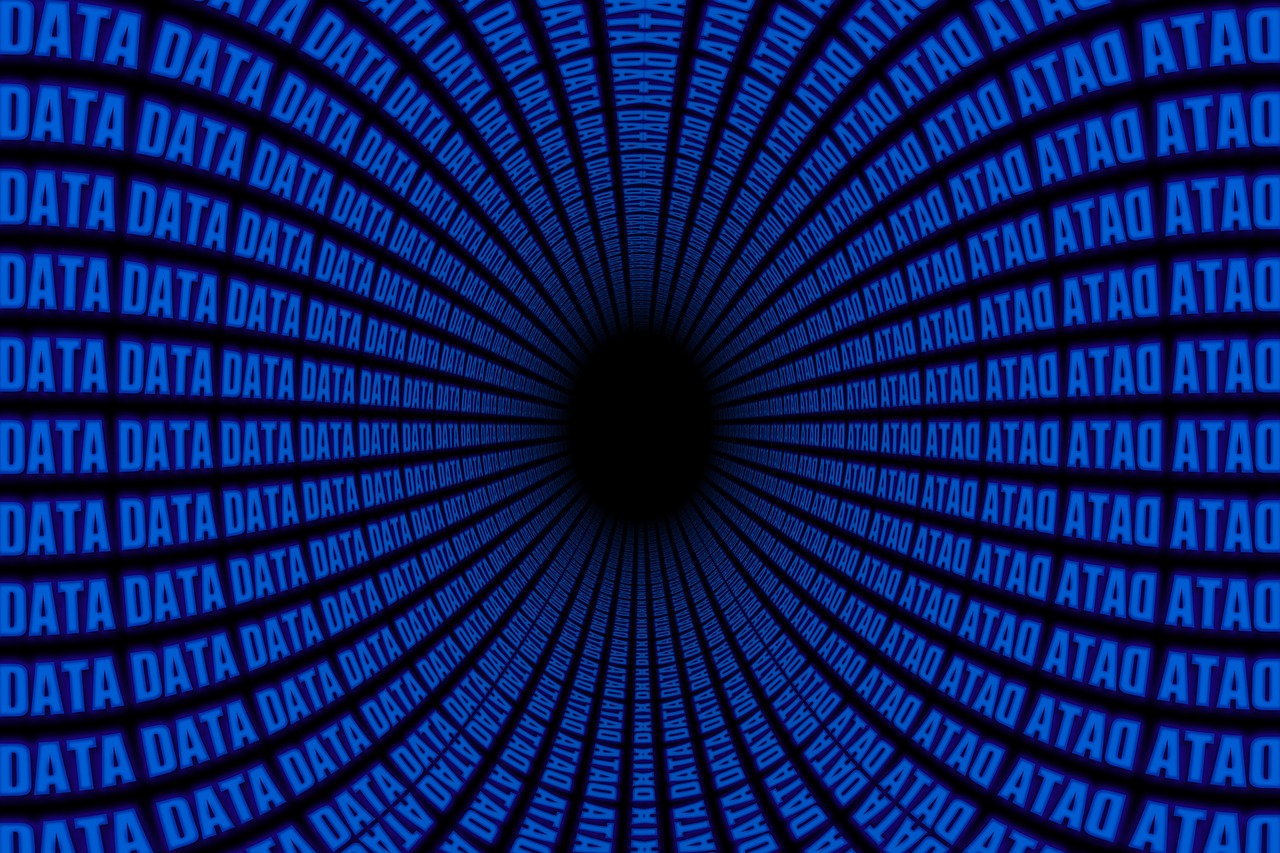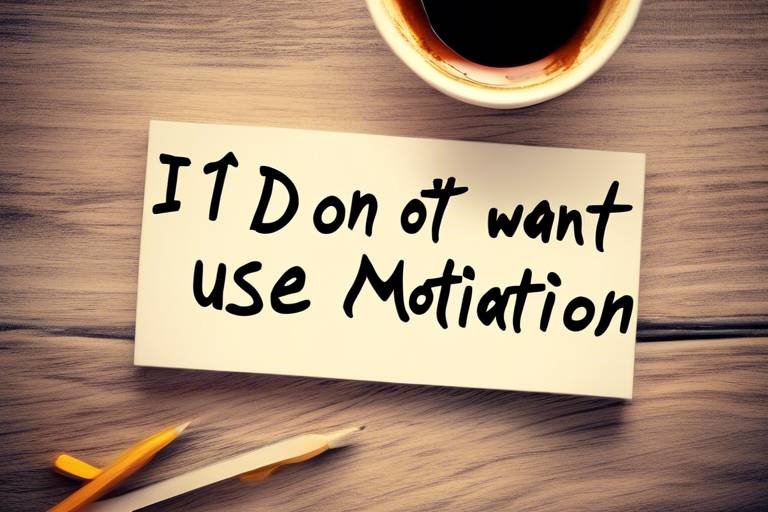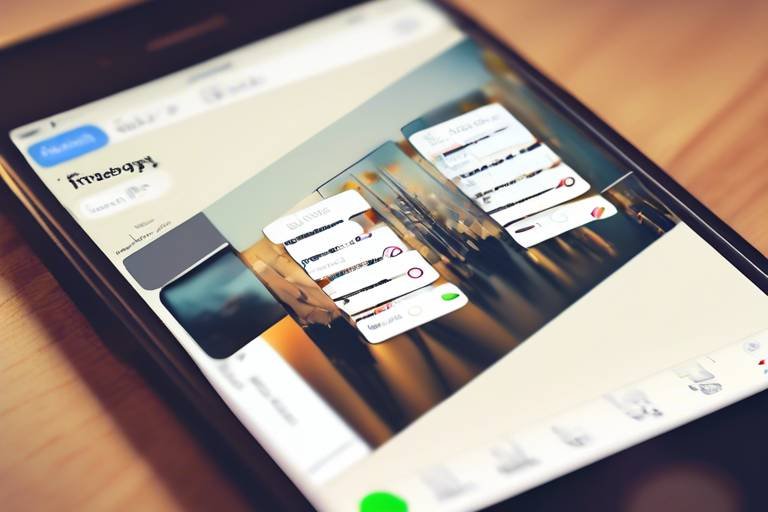How To Leverage Digital Tools for Better Project Management
Project management has evolved significantly with the advent of digital tools that offer a plethora of benefits for efficient project execution. By leveraging these tools, project managers can enhance collaboration, streamline tasks, and ensure better organization throughout the project lifecycle.
One of the key components of digital project management is the use of project management software. These tools come equipped with features that allow teams to track progress, assign tasks, and improve communication seamlessly. By centralizing project information, teams can work more cohesively towards achieving project goals.
Collaboration platforms play a crucial role in modern project management by enabling real-time communication and file sharing among team members, regardless of their physical location. These platforms foster a sense of teamwork and facilitate seamless collaboration, ultimately boosting productivity and efficiency.
Task management apps are indispensable for project managers looking to assign tasks, set deadlines, and monitor progress effectively. These apps help in task prioritization and ensure that projects stay on track by providing a clear overview of pending tasks and deadlines.
Time tracking tools are essential for monitoring work hours, analyzing productivity levels, and optimizing resource allocation. By tracking time spent on various tasks, project managers can identify bottlenecks, allocate resources efficiently, and ensure timely project completion.
Effective communication is the cornerstone of successful project management. Utilizing various communication channels such as emails, instant messaging, and video conferencing fosters transparency and ensures that team members are always aligned on project objectives and timelines.
Data analytics solutions offer valuable insights that can help project managers forecast trends, identify potential risks, and make informed decisions. By leveraging data analytics, project teams can optimize their processes, mitigate risks, and drive better project outcomes.
Virtual whiteboarding platforms have revolutionized the way teams collaborate and brainstorm ideas. These platforms allow team members to visually map out concepts, create interactive presentations, and engage in creative problem-solving for effective project planning and execution.
Cloud storage services provide a secure and accessible platform for storing project documents and files. By leveraging cloud storage, team members can collaborate on documents in real-time, ensuring that everyone has access to the most updated information, thus enhancing collaboration and productivity.

Project Management Software
This article explores the various digital tools available for project management, highlighting their benefits in enhancing efficiency, collaboration, and organization throughout the project lifecycle.
Project management software is a powerful tool that can revolutionize the way teams plan, execute, and monitor projects. By utilizing project management software, teams can streamline tasks, track progress, and improve communication among team members. These software solutions offer a centralized platform where project details, timelines, and resources can be managed efficiently.
One of the key benefits of project management software is its ability to provide real-time updates on project status, allowing team members to stay informed and aligned on project goals. Additionally, these tools often come equipped with features such as task assignment, milestone tracking, and Gantt charts, enabling teams to visualize project timelines and dependencies easily.
Moreover, project management software fosters collaboration by enabling team members to communicate, share files, and provide feedback within the same platform. This not only enhances teamwork but also ensures that everyone is on the same page throughout the project lifecycle.
Overall, project management software is a game-changer for teams looking to boost productivity, improve project outcomes, and achieve greater efficiency in their project management processes.

Collaboration Platforms
Collaboration platforms have revolutionized the way teams work together on projects, breaking down barriers of physical distance and time zones. These digital tools provide a centralized hub for team members to communicate, share files, and collaborate seamlessly, fostering a sense of unity and productivity. Imagine a virtual workspace where ideas flow freely, feedback is instant, and projects move forward without delays caused by communication gaps.
One of the key benefits of collaboration platforms is real-time communication, enabling team members to stay connected regardless of their location. Whether it's a quick chat, a video call, or a collaborative document editing session, these platforms ensure that everyone is on the same page, leading to faster decision-making and smoother project progress. It's like having a digital war room where strategies are discussed, plans are executed, and victories are celebrated in real-time.
Moreover, file sharing capabilities on collaboration platforms simplify the process of exchanging documents, images, and other project-related materials. Gone are the days of endless email chains and version control issues. With a few clicks, team members can access the latest files, provide feedback, and contribute to the project's success. It's akin to having a virtual file cabinet that is always organized, up-to-date, and accessible to everyone involved.
Seamless collaboration is another hallmark of these platforms, allowing team members to work together on tasks, projects, and deliverables with ease. Features such as task assignment, progress tracking, and shared calendars enhance teamwork and accountability, ensuring that project milestones are met on time. Think of it as a digital workshop where each team member has their designated tools, working in harmony to build a masterpiece.
In conclusion, collaboration platforms are indispensable tools for modern project management, fostering teamwork, communication, and efficiency. By harnessing the power of these digital platforms, project teams can overcome obstacles, unleash creativity, and achieve remarkable results. Embrace the future of collaboration and watch your projects soar to new heights.

Task Management Apps
Task management apps have revolutionized the way teams handle their projects by providing a centralized platform for assigning tasks, setting deadlines, and monitoring progress. These apps not only streamline workflow but also ensure that every team member is on the same page regarding project milestones and responsibilities.
One of the key features of task management apps is the ability to categorize tasks based on priority, due dates, and dependencies. This helps in prioritizing tasks effectively, ensuring that critical activities are completed on time without any bottlenecks.
Moreover, task management apps offer collaboration tools that enable team members to communicate, share updates, and provide feedback in real-time. This fosters a sense of transparency and accountability within the team, leading to better coordination and project outcomes.
By utilizing task management apps, project managers can track the progress of each task, identify potential delays, and take proactive measures to keep the project on track. Additionally, these apps often come with reporting and analytics features that provide insights into team performance and project efficiency.
Overall, task management apps serve as a comprehensive solution for organizing, delegating, and monitoring tasks throughout the project lifecycle, ultimately contributing to improved productivity and project success.

Time Tracking Tools
Time tracking tools are essential for project management as they play a crucial role in monitoring work hours, analyzing productivity, and optimizing resource allocation. By utilizing time tracking tools, project managers can gain valuable insights into how time is being spent on various tasks, identify bottlenecks in workflow, and make informed decisions to ensure timely project completion.
These tools not only help in tracking individual and team progress but also aid in setting realistic deadlines and milestones for different project phases. By having a clear overview of time spent on each task, project managers can better allocate resources, identify areas for improvement, and ensure that the project stays on track.
Moreover, time tracking tools provide a transparent way to measure productivity and efficiency within the team. By tracking time spent on specific activities, project managers can identify patterns, assess the effectiveness of processes, and implement strategies to enhance productivity and streamline workflows.
Time tracking tools also enable project managers to generate accurate reports on time allocation, project progress, and resource utilization. These reports can be shared with stakeholders to provide visibility into project status, demonstrate progress, and ensure accountability among team members.
Overall, incorporating time tracking tools into project management processes can lead to improved efficiency, better resource management, and increased accountability, ultimately contributing to the successful completion of projects within deadlines and budget constraints.

Communication Channels
Communication is the lifeblood of any successful project. By utilizing various effectively, project teams can ensure seamless collaboration and efficient information exchange. Email remains a popular choice for formal communication, allowing team members to document discussions and decisions. Instant messaging platforms offer real-time interactions, quick updates, and informal communication, fostering a sense of immediacy and connectivity among team members. Furthermore, video conferencing tools enable face-to-face virtual meetings, enhancing team bonding and enabling visual cues for clearer communication.
When it comes to project management, choosing the right communication channel is crucial. Each channel serves a unique purpose, catering to different communication needs within the project team. While emails are ideal for detailed information sharing and documentation, instant messaging platforms excel in quick exchanges and informal discussions. On the other hand, video conferencing bridges the gap of physical distance, allowing team members to connect visually and collaborate effectively in real-time.
By leveraging a combination of , project managers can ensure that information flows smoothly, feedback is received promptly, and team members stay aligned with project goals. Effective communication not only reduces misunderstandings and delays but also boosts team morale and productivity, leading to successful project outcomes.

Data Analytics Solutions
Data analytics solutions play a crucial role in modern project management by providing valuable insights and data-driven decision-making capabilities. These tools enable project managers to analyze vast amounts of data, identify patterns, and forecast trends to make informed strategic decisions. By leveraging data analytics solutions, project teams can optimize resource allocation, track key performance indicators, and measure the success of project milestones.

Virtual Whiteboarding Platforms
Virtual whiteboarding platforms have revolutionized the way project teams collaborate and brainstorm ideas. These innovative tools provide a digital canvas where team members can ideate, visualize concepts, and create interactive presentations in real time. By simulating the experience of traditional whiteboards, virtual whiteboarding platforms offer a dynamic space for creativity and collaboration, allowing team members to contribute ideas regardless of their physical location.
One of the key advantages of virtual whiteboarding platforms is their ability to facilitate brainstorming sessions effectively. Team members can easily jot down ideas, sketch diagrams, and illustrate concepts on a shared virtual whiteboard, fostering creativity and innovation. With features such as sticky notes, drawing tools, and shape libraries, these platforms enable teams to visually organize thoughts and streamline the ideation process.
Moreover, virtual whiteboarding platforms enhance project planning and execution by enabling teams to create visual representations of project timelines, milestones, and tasks. By mapping out project workflows and dependencies on a virtual whiteboard, team members gain a comprehensive overview of the project scope and progress. This visual approach helps in identifying bottlenecks, prioritizing tasks, and ensuring alignment among team members towards project goals.
Additionally, virtual whiteboarding platforms support interactive collaboration by allowing team members to work together in real time. With features like live editing, commenting, and real-time updates, these platforms promote seamless communication and feedback exchange among team members. Whether brainstorming ideas, reviewing project plans, or presenting findings, virtual whiteboarding platforms enhance team collaboration and foster a sense of engagement and ownership within the project team.

Cloud Storage Services
Cloud storage services have revolutionized the way project teams collaborate and store data. By leveraging cloud storage solutions, teams can securely store and access project documents from anywhere, at any time. This level of accessibility promotes seamless collaboration and eliminates the hassle of version control issues that often plague traditional file storage systems.
Moreover, cloud storage services offer scalability, allowing teams to expand storage capacity as needed without the constraints of physical hardware limitations. This flexibility ensures that project teams can adapt to changing storage requirements without disruptions, enabling smooth project workflows and efficient data management.
Additionally, cloud storage services enhance data security by implementing robust encryption protocols and backup mechanisms. This ensures that project data is protected from unauthorized access, data loss, or system failures, providing peace of mind to project managers and team members regarding the safety and integrity of their project information.
Furthermore, cloud storage services facilitate real-time collaboration by enabling multiple team members to work on the same document simultaneously. This feature promotes productivity and efficiency by allowing team members to share ideas, make edits, and provide feedback in a cohesive and synchronized manner, regardless of their physical location.
Frequently Asked Questions
- What are the key benefits of using project management software?
Project management software offers features such as task tracking, team collaboration, and progress monitoring, leading to improved efficiency, organization, and communication within project teams.
- How can collaboration platforms enhance project outcomes?
Collaboration platforms enable real-time communication, file sharing, and seamless collaboration among team members, regardless of their location, fostering better coordination and productivity.
- Why is time tracking important in project management?
Time tracking tools help in monitoring work hours, analyzing productivity, and optimizing resource allocation, ensuring timely project completion and efficient utilization of resources.
- What role do data analytics solutions play in project management?
Data analytics solutions provide valuable insights, forecast trends, and optimize decision-making processes, contributing to better project outcomes and informed decision-making.
- How do virtual whiteboarding platforms aid in project planning?
Virtual whiteboarding platforms facilitate brainstorming, idea visualization, and interactive presentations, enhancing project planning and execution through visual collaboration and idea sharing.


















